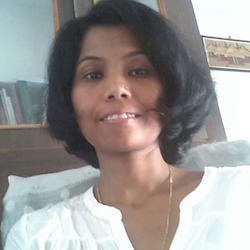Interactive dialogue with Major Groups and other Stakeholders – Statement by Sai Jyothirmai Racherla, ARROW
 Wednesday, March 25, 2015 at 4:29PM
Wednesday, March 25, 2015 at 4:29PM  Sai Jyothirmai Racherla, ARROWRecommendations for the Post-2015 negotiations – Sustainable Development Goals, Targets and Indicators: Interactive dialogue with Major Groups and other Stakeholders
Sai Jyothirmai Racherla, ARROWRecommendations for the Post-2015 negotiations – Sustainable Development Goals, Targets and Indicators: Interactive dialogue with Major Groups and other Stakeholders
25 March, 2015. UN New York
Thank you, Your Excellencies, distinguished delegates. I am Sai Jyothirmai Racherla from the Asian-Pacific Resource and Research Centre for Women (ARROW). I also represent the Asia Pacific Regional Civil Society Engagement Mechanism (RCEM), as well as the Civil Society Platform to Promote SRHR beyond 2015.
We welcome the work done by all stakeholders on the Sustainable Development Goals (SDG), Targets and Indicators.
Firstly, we emphasise that strategic gender and health indicators, including sexual and reproductive health indicators are critical, as they are powerful social equalisers and will help realise the truly transformative sustainable development agenda. In such an unequal world like ours, approximately 800 women, continue to die every day from preventable causes related to pregnancy and childbirth, with 99% of these deaths occurring in developing countries. Young adolescents, poorer women, and those living in remote and hard to reach areas, and women from marginalised communities are at a higher risk of complications and death from these causes. Ensuring sexual and reproductive health services reach these marginalised communities will ensure that women do not die unnecessarily; and women and families do not get into deep debt procuring essential health services and that adolescent girls and young women stay in schools and continue their education. In this way, investment in sexual and reproductive health is the cornerstone for the accomplishment of many of the SDGs.
Secondly as the work on indicators is still taking shape, we recommend the following guiding principles in the development of indicators within the SDG monitoring framework. Indicators should be:
- Robust, time-bound, relevant, specific markers of progress and empowering enough to measure people’s well-being* based on sustainable, equitable and just development [* Well-being should include enjoyment of human rights, political voice and participation, community trust, and the quality of governance.];
- Disaggregated by sex, age, wealth, location, ethnicity, caste, migrant status to unmask social and economic inequalities;
- Address structural and systemic barriers faced by women, young people and socially excluded groups;
- Address inter-linkages within the SDG framework, in order to avoid the silo-ed approach of the MDGs;
- Not a reductionist list, but aim to measure each proposed target in a comprehensive manner.
- Developed by the UN Statistical Commission with inputs from technical experts, UN agencies and civil society.
As we aspire for a bold and transformative SDG agenda, this may call for the inclusion of new and bold indicators, and we urge technical experts to critically examine such prospects. To ensure the process of finalising indicators is inclusive, we call for the inclusion of civil society throughout all stages of indicator development. WE STAND READY TO DO OUR PART!
Lastly, we call that indicators should be sensitive and responsive to the full realisation of human rights, gender equality and social equity. If the experience of the MDGs has taught us anything, it is that development and rights should go hand in hand in order to close the inequality gap. Sustainable development is only possible if we endeavour to create a more equal, just and equitable world for ALL people.
“No sustainable development without ensuring rights for all RIGHT NOW AND RIGHT HERE!”
 Permalink
Permalink 